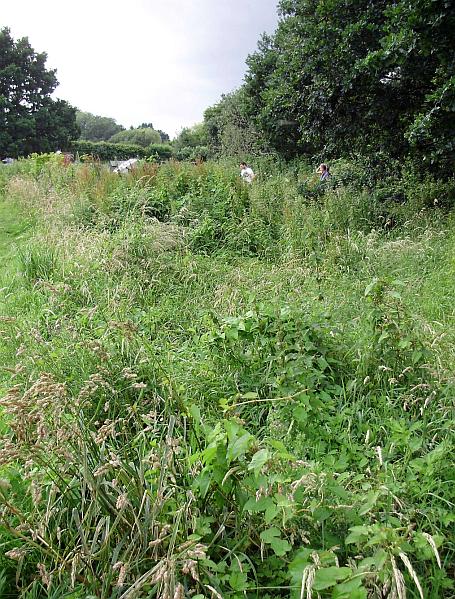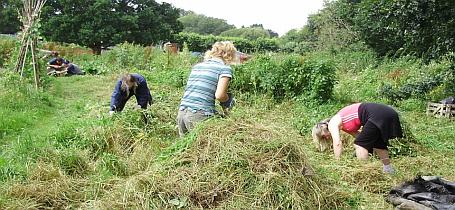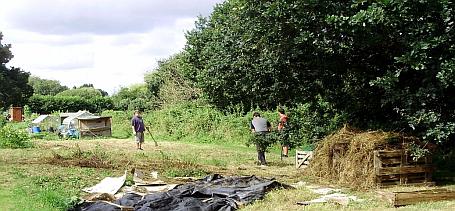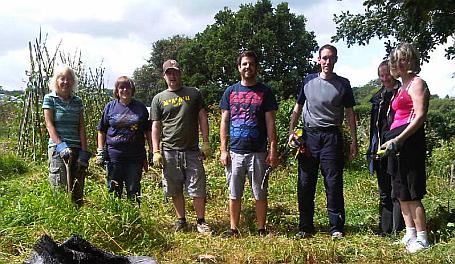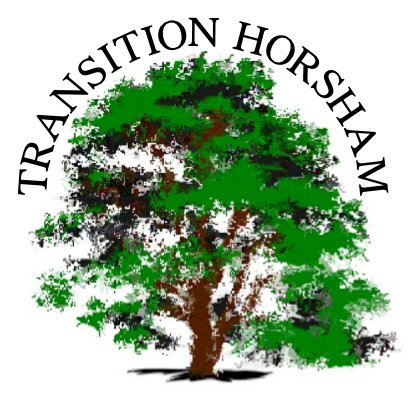Transition Horsham Community Allotment (The Beginning)
The Community Allotment was set up in the summer of 2012 by an enthusiastic group of 8 members of Transition Horsham with a new member, Tim Simmans, as the lead on the project. The committee of Chesworth Allotment Society were kind enough to allow us an area of ground to the south of the main allotments, at the bottom of the hill bounded by oak trees and with drains and hidden paths under the soil. The area was a good size and certainly enough for our needs.
The first sight of the allotment at our first working party on Sunday 8th July 2012 was enough to weaken the resolve of the keenest volunteer. It was packed with tall weeds so that we could hardly see the shape of the area that we had. Nevertheless we made a good start despite the strimmer giving up and not really having the right tools.
The second working party 2 weeks later made more of an impact and we produced an enormous pile of weeds. We found existing apple and pear tree, some autumn raspberry canes, a couple of gooseberry bushes and a surprise desert vine which looked very healthy. One of our group came along during the following week with a brush cutter and made a tremendous difference clearing the rest of the allotment so at least we could see what we had.
It was then time for a joint meeting to see what ideas there were for gardening the allotment, what our aim was and what we wanted to have in the space. We have agreed a shed is essential, with water harvesting gutters and tanks, a greenhouse or polytunnel would be nice to have, a sitting area essential, and then a variety of fruit and vegetables. As 2 of our number had been on a recent Introduction to Permaculture course at Brighton Permaculture Trust we were keen to put what we had learnt into practice and cover some of the weeds with cardboard, paper, compost and straw and leave it for the winter. Others were keen to get stuck in and dig, luckily there was no dispute as there is enough work for all of us to use whatever system we would prefer. We all agreed however that we would try and use recycled and or free material wherever possible, and our first port of call was the local brewery which has quantities of spent hops and cardboard we can use. Another agreement was to apply for funding for a shed and tools, and this is now in hand.
